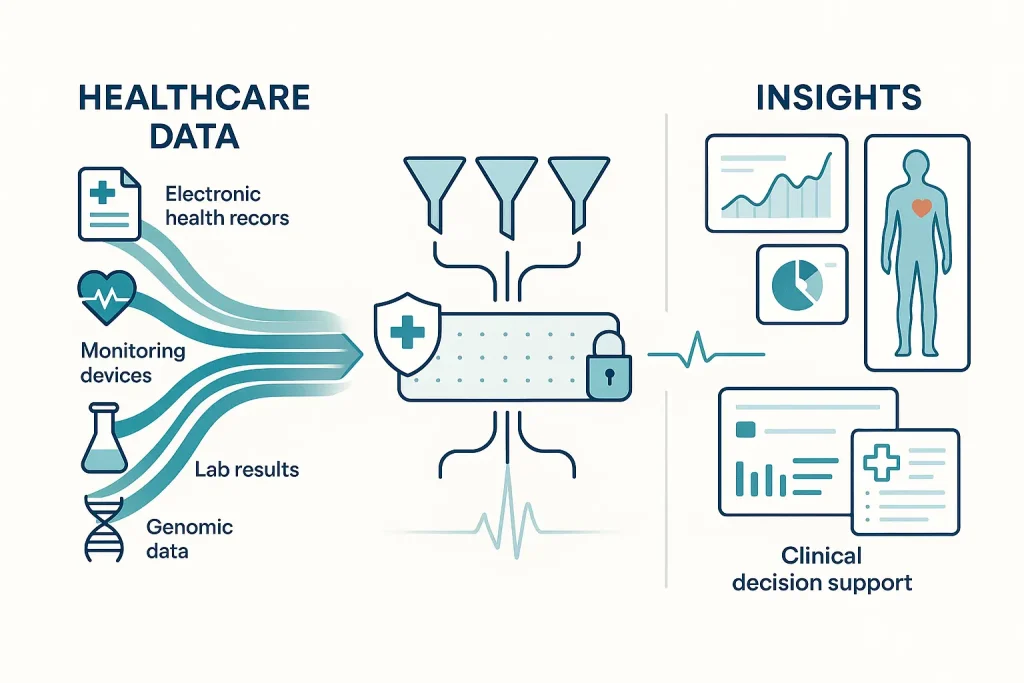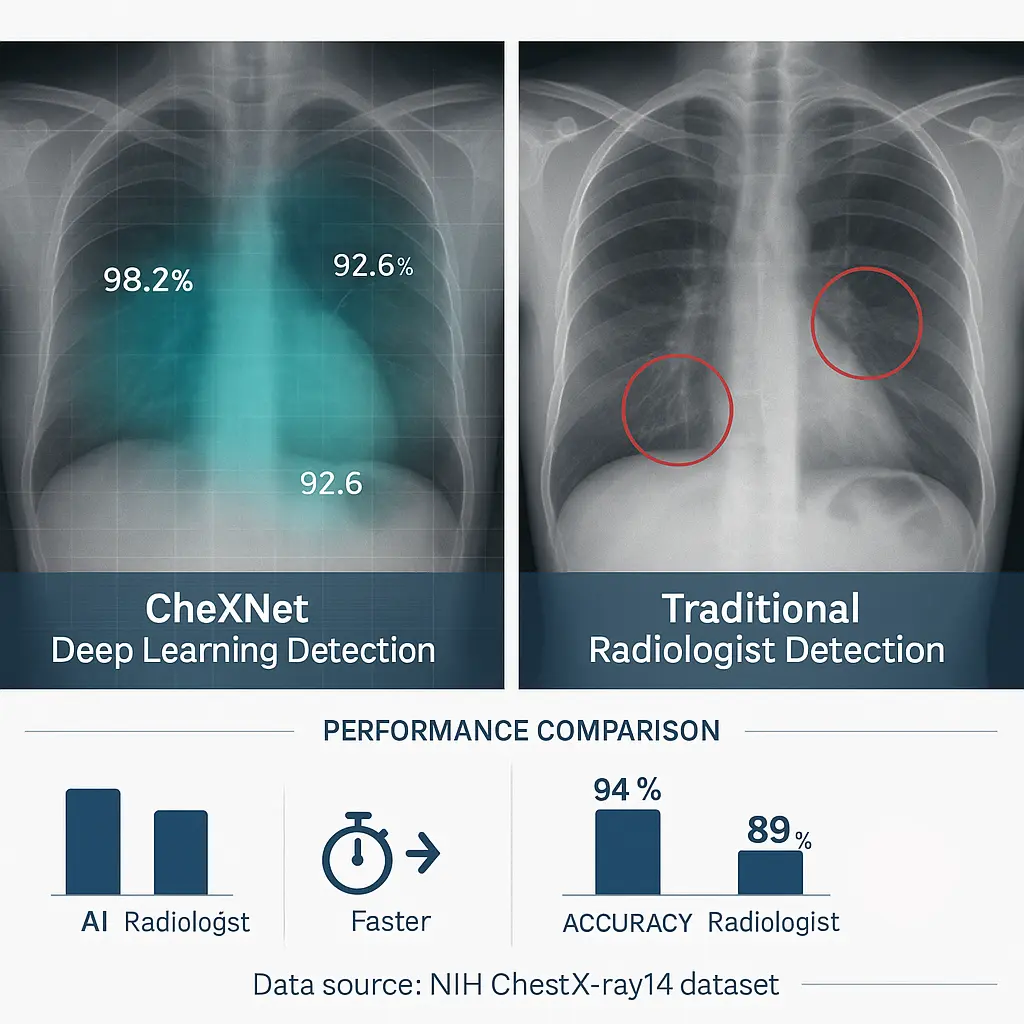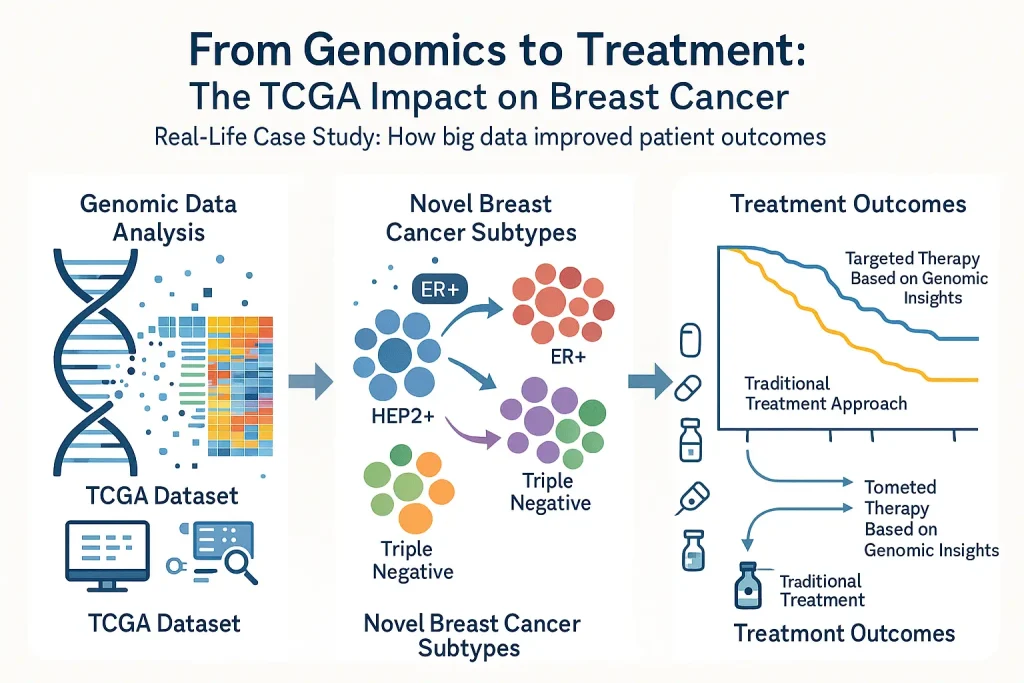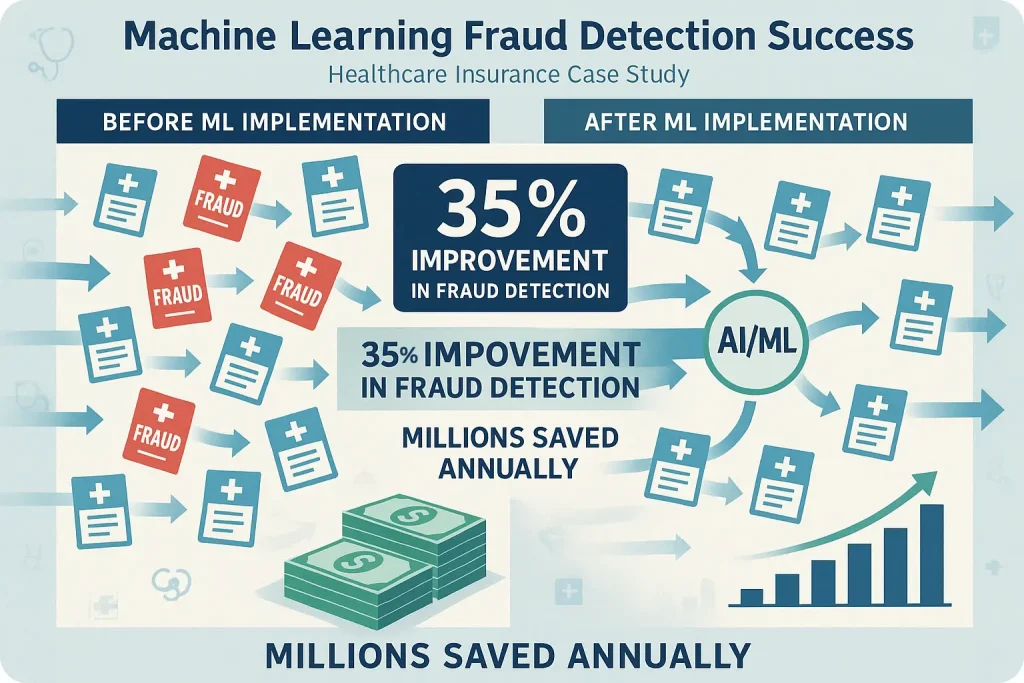- Introduction
- Understanding the Role of Healthcare Datasets
- Types of Healthcare Datasets
- Real-Life Use Case: Diagnosing Pneumonia with Imaging Datasets
- Evaluating Healthcare Dataset Solutions
- Popular Sources of Healthcare Datasets
- Real-Life Case Study: Genomic Datasets in Cancer Research
- Implementing Healthcare Dataset Solutions
- Real-Life Case Study: Insurance Claim Datasets for Fraud Detection
- Healthcare Datasets by Use Case and Complexity
- Challenges in Working with Healthcare Datasets
- Future Trends in Healthcare Dataset Solutions
- FAQ's
- Related Resources
Healthcare Datasets Solutions: A Comprehensive Guide for Data-Driven Healthcare
Introduction
In today’s data-driven healthcare landscape, healthcare datasets solutions play a pivotal role in powering research, diagnostics, treatment planning, and AI-driven innovations. From medical imaging and genomic sequences to clinical trial data and insurance claim datasets, structured and reliable datasets are critical for building accurate and ethical healthcare models. Organizations and researchers require scalable, compliant, and high-quality dataset solutions to address complex medical challenges and accelerate breakthroughs.
This article explores the key types of healthcare datasets, real-world use cases, and how curated dataset solutions enable better patient outcomes, data interoperability, and faster time-to-insight in the ever-evolving healthcare ecosystem.

Image Description: This visualisation shows the healthcare dataset solution, where the turning complex, disparate medical information into unified insights that improves patient outcomes, operational efficiency, and clinical decision-making.
Understanding the Role of Healthcare Datasets
Healthcare datasets serve as the backbone for:
- Evidence-based clinical decisions
- Predictive analytics and AI model training
- Drug discovery and personalized medicine
- Public health interventions and policymaking
Types of Healthcare Datasets
Below is a categorized table summarizing the core types of healthcare datasets and their uses:
| Dataset Type | Description | Use Cases |
|---|---|---|
| Medical Imaging Datasets | Collections of annotated radiology, MRI, CT, or X-ray images | Cancer detection, disease classification, diagnostics |
| Genomic Datasets | DNA/RNA sequencing and genetic variation data | Personalized medicine, disease susceptibility studies |
| Clinical Trial Datasets | Patient data collected during drug trials | Drug efficacy evaluation, adverse effect prediction |
| Public Health Datasets | Population-level health stats, disease outbreaks, vaccination data | Policy development, epidemic modeling, health trends |
| Insurance Claim Dataset | Records of medical claims, treatments, and reimbursements | Fraud detection, cost modeling, operational analytics |
Real-Life Use Case: Diagnosing Pneumonia with Imaging Datasets
Stanford University used medical imaging datasets from chest X-rays to train a deep learning model, CheXNet, which outperformed radiologists in diagnosing pneumonia. The data came from the NIH ChestX-ray14 public dataset, showcasing how access to quality datasets can save lives and enhance diagnostic accuracy.

Evaluating Healthcare Dataset Solutions
At this stage, stakeholders begin assessing which healthcare datasets are suitable for their specific needs, whether for AI development, research, or operational optimization.
What to Look for in a Dataset Solution
When selecting a healthcare dataset, consider the following factors:
Data Quality
- Consistency and completeness
- Accurate labeling and annotation
- Free of noise or errors
Data Compliance
- HIPAA and GDPR adherence
- De-identified to protect patient privacy
- Proper usage rights for commercial or research purposes
Data Relevance
- Aligned with your domain (oncology, cardiology, etc.)
- Representative demographics and sample size
- Supports your target use case
Scalability and Format
- Easily scalable for AI training
- Available in standardized formats (DICOM, FASTQ, HL7, CSV)
Popular Sources of Healthcare Datasets
| Dataset Repository | Type | Highlights |
|---|---|---|
| Macgence Medical Datasets | Medical imaging | Over 150,000 chest X-ray images, Lungs Infection, Blood Pressure labeled with 14 disease conditions |
| NCBI Datasets | Genomic, clinical | Offers access to genetic sequences, pathogen genomes, and clinical data |
| TCGA Dataset | Genomic + imaging | Includes genomic, transcriptomic, and imaging data for over 30 cancer types |
| PhysioNet | Clinical time-series | Contains ECG, EEG, and ICU patient data |
| NIH ChestX-ray14 | Medical imaging | Over 100,000 chest X-ray images labeled with 14 disease conditions |
| CMS Medicare Claims | Insurance claim dataset | Publicly available billing and claims data for U.S. Medicare beneficiaries |
Real-Life Case Study: Genomic Datasets in Cancer Research
The Cancer Genome Atlas (TCGA dataset) has been instrumental in revolutionizing cancer diagnostics. For example, researchers used TCGA to uncover new subtypes of breast cancer, leading to more targeted therapies and improved patient survival rates.

Implementing Healthcare Dataset Solutions
Now that the options have been considered, the focus turns to choosing and implementing the right healthcare dataset solutions that align with your goals.
How to Choose the Right Dataset Partner or Provider
Whether sourcing from a public database or working with a third-party data provider, the following checklist can guide your decision:
Evaluate the Provider’s Capabilities
- Expertise in healthcare-specific data labeling and annotation
- Proven compliance with regulatory frameworks
- History of successful healthcare AI or analytics projects
Request a Pilot or Sample Dataset
- Analyze data format, labeling quality, and relevance
- Perform initial model training or analysis to evaluate usefulness
Assess Support Services
- Post-sale support for integration and troubleshooting
- Update frequency for dynamic or real-time datasets
- Ability to customize datasets for niche requirements
Choose Based on Your End Goal
| Goal | Recommended Dataset Types |
|---|---|
| Build AI diagnostic tools | Medical imaging datasets, genomic datasets |
| Monitor population health | Public health datasets |
| Detect insurance fraud | Insurance claim dataset |
| Design personalized therapies | Genomic datasets, TCGA dataset |
| Evaluate drug efficacy | Clinical trial datasets |
Real-Life Case Study: Insurance Claim Datasets for Fraud Detection
A U.S. health tech company integrated an insurance claim dataset with machine learning to identify anomalies in billing patterns. The result? A 35% improvement in fraud detection rates, saving millions in operational costs annually.

Healthcare Datasets by Use Case and Complexity
| Dataset Type | AI Use Case | Data Volume | Complexity | Access Type |
|---|---|---|---|---|
| Medical Imaging Datasets | Disease detection, image classification | High | Medium | Public/private |
| Genomic Datasets | Drug discovery, personalized medicine | Very High | High | Public/private |
| Clinical Trial Datasets | Efficacy analysis, adverse effects | Medium | Medium | Public (limited) |
| Public Health Datasets | Epidemiology, policy modeling | High | Low | Mostly public |
| Insurance Claim Dataset | Cost modeling, fraud detection | High | Medium | Private/commercial |
Challenges in Working with Healthcare Datasets
Despite the growing availability of healthcare data, several challenges persist:
1. Data Privacy and Regulations
Strict laws like HIPAA and GDPR limit access and sharing of patient data, making de-identification and anonymization essential.
2. Data Imbalance and Bias
Datasets may overrepresent certain demographics, causing AI models to generalize poorly across diverse populations.
3. Interoperability Issues
Different data standards (e.g., HL7, DICOM, FHIR) across healthcare systems make data integration a significant challenge.
Future Trends in Healthcare Dataset Solutions
- Federated Learning with Private Datasets
Allows model training across multiple institutions without sharing raw data, preserving privacy while improving model performance.
Using generative models to create synthetic yet realistic datasets that maintain privacy but retain statistical integrity.
- Real-Time Data Pipelines
Emerging demand for real-time streaming datasets from wearable devices, hospital monitoring systems, and mobile health apps.
Conclusion
Healthcare data is not just information, it’s potential. The right healthcare dataset solution can accelerate innovation, improve patient outcomes, and enable breakthroughs in treatment, diagnostics, and public health.
Whether you’re a healthcare startup building diagnostic AI, a pharma company exploring genomics, or a public health agency tracking disease outbreaks, structured and compliant datasets are the foundation of progress.
FAQ’s
Ans. Healthcare dataset solutions are tools and services that collect, curate, annotate, and manage structured and unstructured healthcare data, including medical imaging, EHRs, clinical trials, genomic sequences, and public health data. These solutions help researchers, AI developers, and healthcare providers improve diagnostics, treatment planning, and predictive modeling.
Ans. Healthcare AI projects commonly use datasets such as:
* Medical imaging datasets (e.g., X-rays, MRIs, CT scans)
* Electronic Health Records (EHRs)
* Genomic datasets
* Clinical trial datasets
* Public health and epidemiological datasets
* Insurance claim datasets
Each dataset type supports different AI applications like disease detection, patient risk prediction, and personalized medicine.
Ans. Data annotation in healthcare is critical because it adds context and structure to raw medical data, making it usable for machine learning models. Proper annotation enables accurate image labeling, entity recognition in clinical texts, and segmentation in medical scans, directly impacting AI model performance and clinical outcomes.
Ans. Privacy in healthcare datasets is ensured by de-identifying personal health information (PHI), applying data encryption, and complying with regulations like HIPAA, GDPR, and HL7 standards. Healthcare dataset solution providers often implement secure data pipelines and audit trails to maintain compliance.
Ans. You can access quality healthcare datasets from:
* Government sources (e.g., NCBI, CDC, TCGA)
* Academic research portals
* Open-access repositories
* Trusted healthcare data providers
Always ensure datasets are ethically sourced, anonymized, and legally usable for your specific ML project.
Ans. Macgence provides end-to-end healthcare dataset solutions including data collection, annotation, de-identification, and custom dataset creation across modalities like medical imaging, clinical texts, and genomic data. With a strong focus on HIPAA-compliant workflows and human-in-the-loop validation, Macgence enables healthcare AI teams to build accurate and trustworthy models.
Related Resources
- EEG Datasets for Machine Learning
- Generative AI in Healthcare
- Conversational AI in Healthcare
- Computer Vision in Healthcare
You Might Like
July 24, 2025
Transform Your Data: Classification & Indexing with Macgence
In an AI‑driven world, the quality of your models depends entirely on the data you feed them. People tend to focus on optimising model architecture, reducing the time of training without degradation of accuracy, as well as the computational cost. However, they overlook the most important part of their LLMs or AI solution, which is […]
July 22, 2025
Stress Test Your AI: Professional Hallucination Testing Services
In the age of LLMs and gen AI, performance is no longer just output—it’s about “trust”. One of the biggest threats to that trust? Hallucinations. These seemingly confident but factually incorrect outputs can lead to misinformation, massive brand damage, which can cause millions, compliance violations, which can cause legal issues, and even product failure. That’s […]
July 21, 2025
How Smart LLM Prompting Drives Your Tailored AI Solutions
In today’s AI world, every business increasingly relies on LLMs for automating content creation, customer support, lead generation, and more. But one crucial factor people tend to ignore, i.e., LLM Prompting. Poorly crafted prompts result in hallucinations or sycophancy—even with the most advanced models. You might get chatty copy but not conversions, or a generic […]




